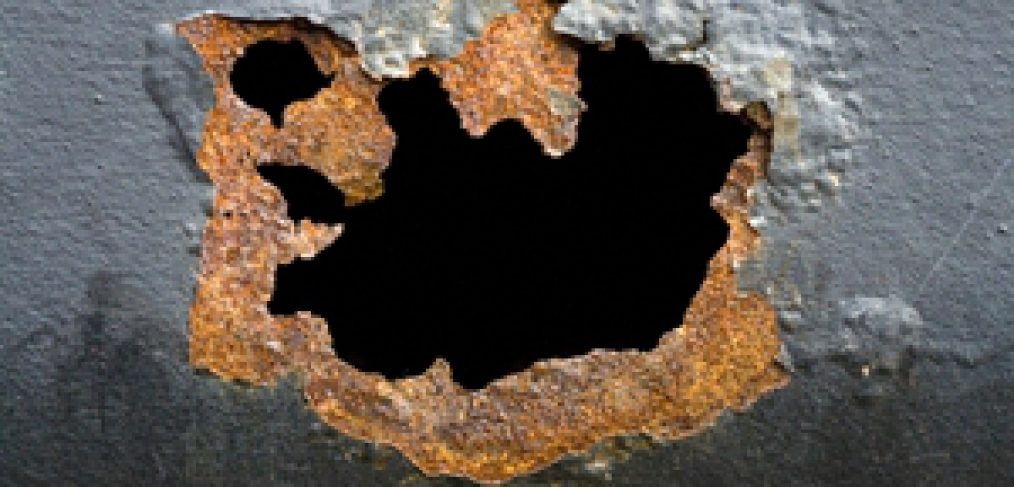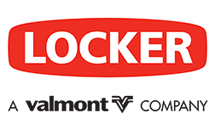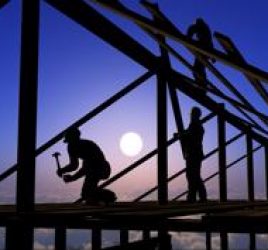
The impact of corrosion – and what we can do to prevent it
Corrosion is a challenge for many industries, particularly those that use metal products extensively or in harsh environments. The effects of corrosion present a huge financial cost to the Australian economy, and can lead to potentially hazardous mechanical or structural failures.
But it does not have to be this way, as much of this corrosion can be prevented through awareness and design choices. Here’s how Locker Group’s industrial products and solutions can minimise the effects corrosion has on your business.
The widespread effects of corrosion
Research from the Curtin University of Technology suggests that corrosion may be costing the Australian economy more than $30 billion each year, and part of what makes that cost so high is how widespread the issue is throughout industries.
“Almost all engineering materials, such as steel, plastics and concrete, are subjected to corrosion and degradation,” says Dr Reza Javaherdashti, Curtin’s School of Civil and Mechanical Engineering Research Fellow.
The key to avoiding corrosion is choosing materials that will handle the conditions.
Professor Rolf Gubner, director of the Western Australian Corrosion Research Group, says that addressing corrosion not only saves money, it can help prevent accidents. However, decision makers do not always realise what a big issue corrosion will be, or how they can prevent it with educated choices.
“An appreciation of corrosion will, in many cases, provide opportunities for its threat to be removed during the design stages of a project, or a successful treatment program to be implemented,” he says.
The key to avoiding undue corrosion in your industrial workplace is choosing materials that will handle the conditions. We can help with this, as we offer a range of products that have corrosion-resistant properties.
 Early planning can help you to avoid the problem of corrosion.
Early planning can help you to avoid the problem of corrosion.Locker Group’s corrosion prevention techniques
Preventing metal from corroding can be done in three basic ways: coating, galvanising or using an alloy like stainless steel.
Coated metal
By covering metal with paint or some other coating it prevents it from interacting with the air or other substances in the environment that cause corrosion. This also has the potential for aesthetic appeal when a colourful or interestingly textured coating is used. Zincalume or powder-coated metals are examples of coated materials that we use at Locker Group.
Galvanised steel
Galvanising involves coating steel in a thin layer of zinc, which protects it from the elements. In addition to acting as a protective coating for the steel, the zinc behaves as a sacrificial metal – even if the steel is exposed to air, the zinc will oxidise first because it is the more reactive of the two.
Stainless steel
Stainless steel does not need to be coated because it effectively forms its own. The alloy of stainless steel contains various metals, particularly chromium, that react to air and water faster than iron. This reaction forms a thin film of metal oxides and hydroxides that protects the metal below. As Scientific American points out, the reason stainless steel appears ‘stainless’ isn’t because it has no corrosion – it’s because it’s constantly covered in a layer of corrosion that is so thin it can’t be seen with the naked eye.
 Stainless steel is protected by a layer of its own oxidisation.
Stainless steel is protected by a layer of its own oxidisation.Our expanded and perforated metal panels can be finished with any of these techniques to minimise the damage of corrosion. For some architectural applications, where the look of a material is prioritised over structural longevity, metal products can be left untreated, so that the tarnished surface becomes a part of the building’s design. For industrial applications, however, the functionality and resistance of metal products will be the focus, both for the safety and financial benefits.
Corrosion and eventual degradation will affect all machinery and structures to some extent. But with sensible choices of materials that are suited to the conditions, you can minimise the impact it will have on your business. Get in touch today to talk about how Locker Group products could work best for your particular situation and needs.




